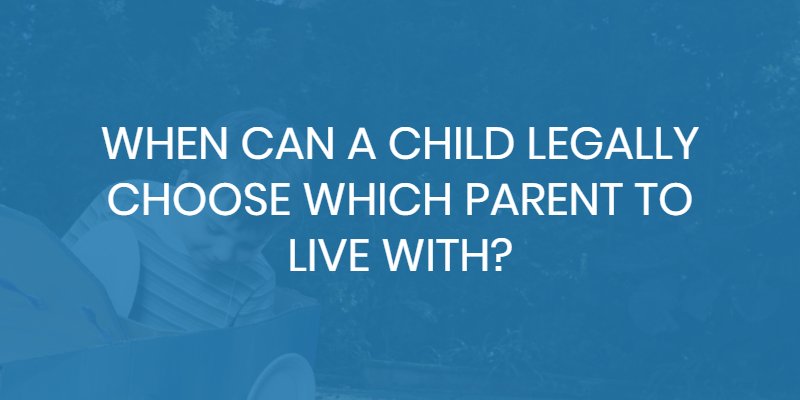Law Attorneys Get Started Today
When Can a Child Legally Choose Which Parent to Live With?
Child custody is one of the most complex matters in a Colorado divorce case. Determining which parent will receive joint, shared, or full custody of children will become a decision of the court, if the parents cannot agree to custody terms on their own. The number one factor a judge will consider when making custody determinations is the best interests of the child. Colorado law makes it mandatory for a judge to consider this first when deciding parental responsibilities.
If you are going through a divorce in Fort Collins and children are involved, do not wait until this important decision is entirely in a judge’s hands. Call the Fort Collins child custody lawyers at the Law Office of Stephen Vertucci at (970) 900-1800 today and arrange for a consultation.

What Factors Affect a Custody Decision?
Although a child’s best interests come first, many different things can influence a judge’s decision during a child custody case. Both parents will have the opportunity to state their cases for custody. The judge will listen to both sides, speak to people close to the child, and may discuss the matter with the child depending on the situation. The judge will then use a variety of factors to make the final determination.
- Child’s age
- Interaction between the child and parents and siblings
- Home, school, and community adjustments
- Parents’ mental and physical health
- Willingness of parents to share the child
A judge may also take into account the child’s own wishes. However, that is not to say your child will have the ability to decide whom to live with during a divorce. A judge may ask a child who is old enough (typically 12 to 14) which parent he or she prefers to live with the majority of the time. A judge will typically do this outside of the courtroom, to keep the child out of the case as much as possible. A judge will use a third-party evaluator to ascertain the child’s wishes. Then, the judge may consider this during the decision.
The Power of a Child’s Wishes
Each child custody case is unique. In Colorado, as in most states, no hard and fast rule exists with an age at which children are old enough to make custody decision on their own. Instead, judges will take each case as they come. Most courts agree that age 14 is old enough to give kids some say in custody battles. By ages 16 and 17, children may have more influence over which parent they live with. Some courts will place significant weight with the opinions of children this old. Children younger than 14, however, will have a harder time getting a judge to take their wishes into account.
A judge will never base a custody decision solely on the wishes of the child, regardless of age. However, a judge may consider an older child’s wishes in the final determination. A child’s wishes may come true if a judge determines that is what is in the child’s best interests. Otherwise, the child will have to live with the other parent, even if he or she does not want to. A judge will always rule in favor of the best interests of the child, regardless of what the child wants or does not want. Yet a child old enough may be able to sway the judge’s decision.
Can a Child Change a Custody Order?
No, the wishes of a child to go live with the other parent are not enough on its own to change a custody agreement in Colorado. Colorado Revised Statutes Section 14-10-129 states that a child must be in physical or emotional danger for the judge to approve a change in primary residential child custody. Even if a teenage child wants to live with the other parent, he or she lawfully cannot do so without proving physical or significant emotional endangerment. Going to live with the other parent without an official custody agreement modification could put the parent in violation of the order.
More Information / FAQ’s on Child Custody
- Factors Parents Should Consider When Determining Child Custody
- Are Mothers Favored in the Child Custody Process?
- Can You Lose Custody of Your Child if You Miss Too Many Visitations?
- Is Co-Parenting Right for Your Child Custody Case?
- Colorado Child Custody Laws